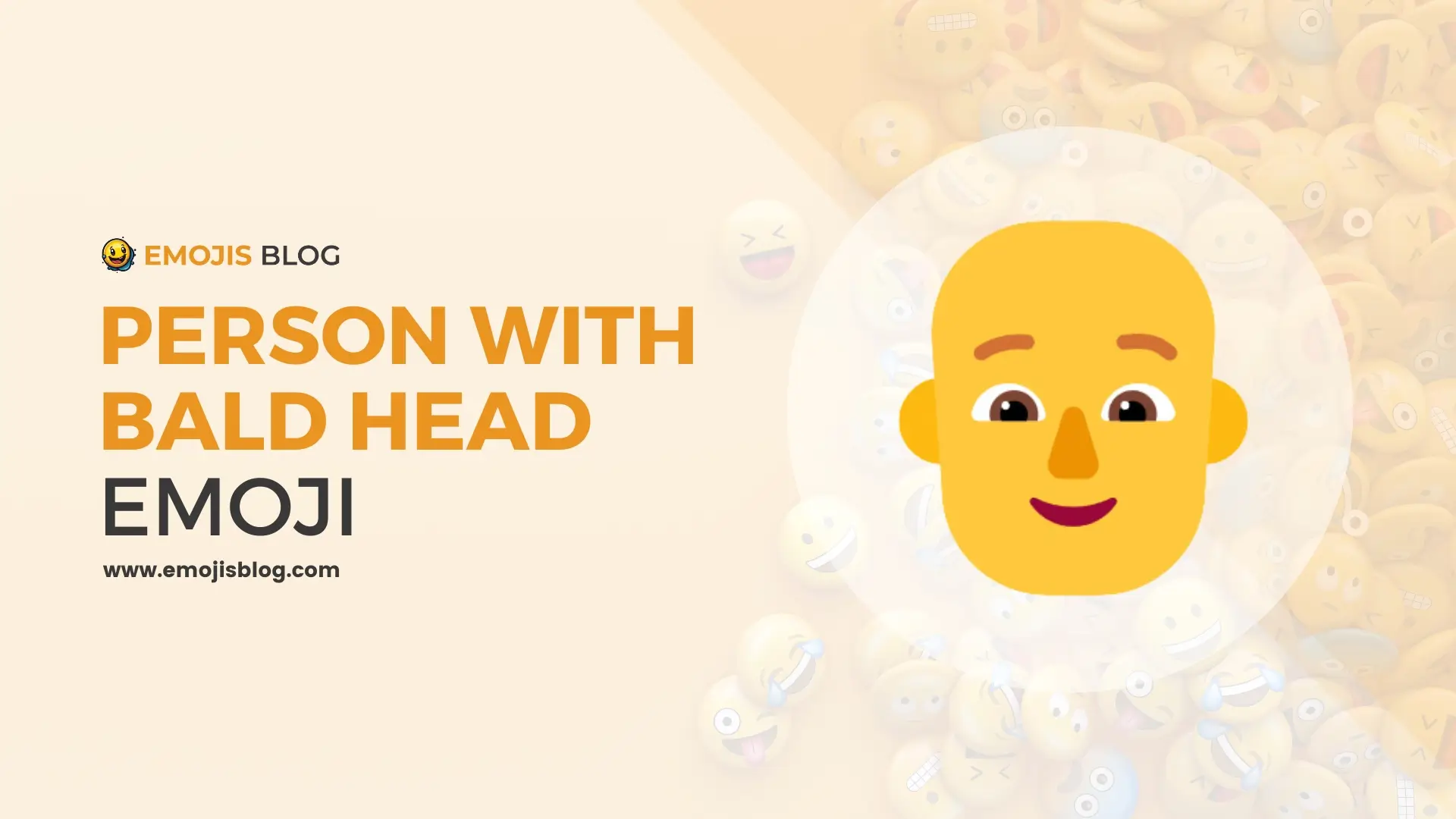What Does The Person With Bald Head Emoji Mean 🧑🦲
🧑🦲
What’s a Person With Bald Head Emoji 🧑🦲?
The bald head emoji (🧑🦲) is a gender-neutral emoji that depicts a person without hair. It can be used to represent people who are bald by choice, due to medical conditions, or natural aging. The emoji also plays a role in expressing support for those experiencing hair loss or in promoting diversity and inclusion efforts. Because hair loss can sometimes be sensitive, it’s important to use this emoji with empathy and consider the context of your message.
Technical Information
| Term | Description |
|---|---|
| Unicode Name | Person: Bald |
| Unicode Codepoint | U+1F9D1 U+200D U+1F3FB (Variation for lightest skin tone ) |
| Category | People & Body |
| Subgroup | Person |
| Shortcodes | :person_bald: (may vary depending on platform) |
| Release Year | 2019 (Part of Emoji 12.0) |
| HTML Entity | 🧑‍🏻 (Representation for lightest skin tone) |
| CLDR Short Name | person-bald |
| Platforms | Supported across major platforms like Apple, Google, Microsoft, Samsung, Twitter, etc. |
Understanding the Bald Head Emoji (🧑🦲) and Its Applications
The bald head emoji (🧑🦲) offers a surprisingly diverse range of applications in digital communication. Let’s explore its primary meanings and appropriate use in professional settings:
Representations
- Hair Loss: The emoji’s most direct interpretation is representing individuals who are bald, whether by choice, medical condition, or natural causes. It can be used in contexts discussing hair-related topics.
- Support and Solidarity: In professional communication, the bald head emoji can express support for those battling cancer or other medical conditions that lead to hair loss.
- Gender Neutrality: The bald head emoji offers a gender-neutral option when discussing people in general. This can be particularly useful in workplace discussions focused on inclusion and non-binary representation.
Cautious Considerations
It’s essential to acknowledge that hair loss can be a sensitive topic. While the bald head emoji is generally well-meaning, it is advisable to use it with empathy and awareness. When communicating about sensitive issues, a more text-based approach may be the most respectful and professional choice.
Examples of Appropriate Professional Use
- Medical/Health Communications: “Our organization extends support to those affected by hair loss, including individuals undergoing treatment 🧑🦲”
- Diversity and Inclusion Initiatives: “Let’s promote an environment where everyone feels comfortable, regardless of appearance 🧑🦲🧑🦱🧑🦳”
- Team-Building Humour: “Well, that project was unexpected! Feeling a bit 🧑🦲 right now, but we learn and move on!” (Ensure you understand your team dynamic before using playful humor in a professional setting).
The Bottom Line
The bald head emoji primarily promotes inclusivity and offers support. However, professional communication often necessitates sensitivity and a preference for textual clarity. Use this emoji thoughtfully to ensure your message aligns appropriately with your professional context.

